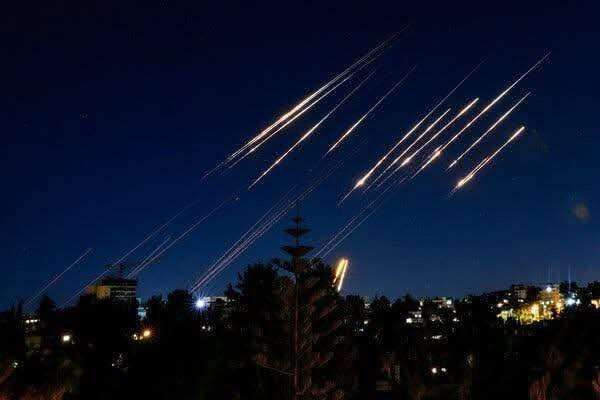ISRAEL-IRAN WAR ANALYSIS —Iran’s recent display of advanced missile capabilities has left global leaders and analysts in awe, particularly in the context of the ongoing conflict with Israel.
According to Engineer Abdullahi Garba Ramat, a UN African Director for Eminence Peace Ambassador and former lecturer at Kano State Polytechnic, Iran’s ability to breach multiple layers of defense systems is a remarkable achievement.
In a now viral post on his Facebook page on Sunday, Ramat highlights the complexity of the defense systems that Iranian ballistic missiles must navigate to reach Israel.

“As an Engineer and student of knowledge, I have been closely following the unfolding Iran-Israel conflict, particularly the use of cutting-edge and advanced military technologies. One aspect that fascinates me is the sheer complexity of missile defense systems.
“While an Israeli missile launched toward Iran travels a distance of just under 2,000 kilometers with minimal opposition or interceptive barriers along the way, the scenario is different in reverse.
“An Iranian ballistic missile aimed at Israel must survive a formidable, multi-layered global military defense before even approaching Israeli airspace.”
Listing the airspace and regions Iran’s missiles must penetrate, the former DG of the Kano State Metropolitan Agency, named 5 major resistances, including the;
- U.S. military systems in Iraq
- French Rafale jets stationed in the UAE (granted airspace access by Saudi Arabia)
- USS Carl Vinson strike group in the Gulf, equipped with advanced missile destroyers
- Jordanian and U.S. air defense systems in Jordan
- British RAF fighter jets from bases in Cyprus
“And if it survives all that, it still faces Israel’s own three-tiered missile defense network: Arrow-3: space-based interception (up to 2,000km), Arrow-2: atmospheric re-entry defense, David’s Sling and Iron Dome which is medium and short-range interception.
“Each layer is powered by cutting-edge military technology developed by the U.S, NATO allies, and the Israel.”
Why is Iran’s strike considered impressive?
What’s striking, according to Ramat, is that Iran’s domestically produced missiles have managed to break through these multiple layers, inflicting significant damage. “Even if only one missile breaks through and hits Tel Aviv, it’s not just a military success — it’s a strategic earthquake,” Ramat notes.
“Let’s not forget: Iran’s missiles are domestically produced under international sanctions. Yet, they have not only managed to break through these multiple layers but have done so fiercely, inflicting serious damage.
“Even, if only one missile breaks through and hits Tel Aviv, it’s not just a military success — it’s a strategic earthquake. No missile in history has ever penetrated such multiplayer advanced defense network.
“Of course, Iran’s warfare isn’t just impressive, it’s extraordinary which many underrated —The lion roars louder than we all ever expect.”
What You Should Know About the Iran-Israel War
Historical Context: The conflict between Iran and Israel is rooted in decades of tension, with Iran’s revolutionary government viewing Israel as an occupying force in Palestine.
Proxy Wars: Iran has supported various proxy groups, including Hezbollah in Lebanon and Hamas in Gaza, which have clashed with Israel.
Cyberattacks: Both countries have engaged in cyberattacks, targeting critical infrastructure and military systems.
Missile Programs: Iran’s missile program has been a point of contention, with Israel viewing it as a threat to its security.
Global Implications: The conflict has significant implications for global security, with the potential to draw in other countries and escalate into a wider regional conflict.
Avoid Taking Sides Based on Religious Affiliations, Expert Warns
Experts are warning people to avoid taking sides in the Iran-Israel conflict based on religious affiliations.
Experts have noted that it’s essential to recognize that Israel is not a Christian nation but a country with a complex history and diverse population.
It must be understood that Israel is a Jewish state, and its conflict with Iran is rooted in geopolitical and ideological differences rather than religious conflicts.
“We must not mistake Israel for a Christian nation or view the conflict through a religious lens,” experts echo in commentary and across social media.





